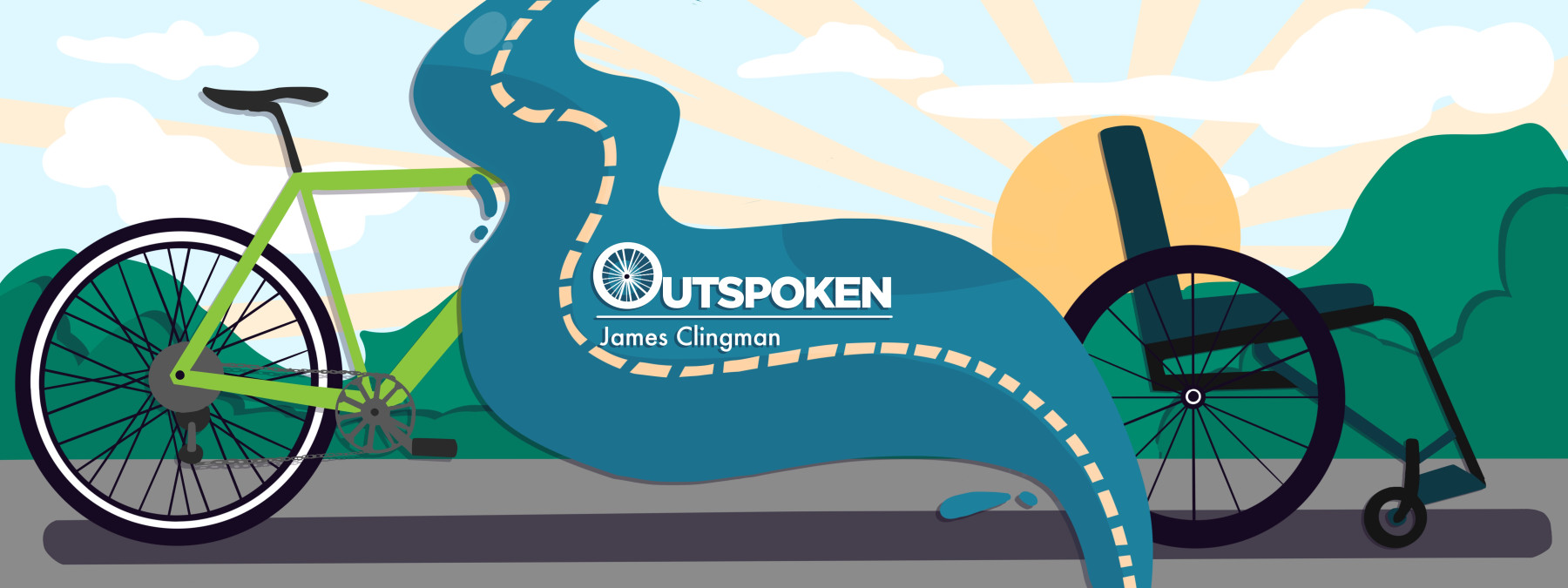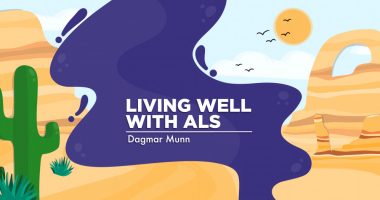We must do more to accelerate the diagnosis and treatment of ALS
ALS is over 150 years old. Why not more progress?

ALS was first identified in 1869, though its symptoms were documented in medical literature as early as 1824. It’s intriguing that the sequence of the disease today is often similar, with initial symptoms followed by an actual diagnosis.
It took four years to receive my diagnosis of ALS, during which time I went through physical therapy, chiropractic manipulation, myriad tests for Parkinson’s and other illnesses, and back surgery. The reality of ALS is fraught with issues that relate to its onset typically occurring months or years before a diagnosis. In other words, there’s no definitive way to “catch it early.”
Some conditions, such as certain types of cancer, can be headed off if caught early. But many rare, degenerative diseases cannot be detected early, and even if they could, the prognosis is always the same. No remission and no dormancy. So what can we do?
Bringing ALS to the forefront
I understand the economics of medical research and drug development aren’t conducive to dedicating much time to finding a cure for ALS. But I also understand and believe in the squeaky-wheel concept. Thus, we have to squeak much louder.
There’s a relatively small cadre of dedicated persons, medical, legal, and political, who work tirelessly to find and advocate for solutions to ease the burdens borne by ALS victims and their families. But they need help.
The way things are in our slow-paced world of drug approvals and research initiatives, those who contract ALS today have little hope they’ll see a cure or a cessation of symptoms.
As I’ve said before, miracles do exist. But I also believe we need more miracle makers and miracle assistants. One such person is Michelle Lorenz, whom I met online a few years ago and worked with to get senators to support the fast-tracking of an initiative to help suppress ALS.
Michelle is indefatigable and relentless when it comes to lobbying for the rights and treatment of ALS patients. Check her out on Facebook.
It’s unimaginable that diagnosis — and thus, treatment — for one of the worst diseases known to man can take four years, as it did for me. This is not 1824 or 1869. Surely we can do better.
One of the most disquieting things for me is hearing about a younger person or a friend being diagnosed with ALS. It truly makes me sad, and recently I received news of both. I wish I had that proverbial magic wand to make it all go away or make it better.
It’s also very disheartening to hear about familial ALS cases. I wrote about one family in a previous column, and a reader shared that her family has also lost several members to ALS.
On a positive note, I just received some news of progress on the familial type. Last month, the Spanish National Cancer Research Center noted that a paper published in Molecular Cell “provides the first evidence that a possible cause of the hereditary type of ALS — familial ALS — is the accumulation in motor neurons of ‘junk proteins,’ proteins with no function that wrongly accumulate and prevent the cell from functioning properly.” According to researchers, this finding could help them explore new treatment pathways.
We who have suffered for years — and know how hard ALS is — are deeply hurt by new cases, especially when a young person gets our disease. And knowing that anyone can get it, we encourage all who can to do all they can to put an end to this heinous condition.
Simply because a disease is rare doesn’t justify putting it on the back burner. We must give more of our time, talent, and treasure to the diagnosis, treatment, and cure for ALS. We owe it to our society.
Note: ALS News Today is strictly a news and information website about the disease. It does not provide medical advice, diagnosis, or treatment. This content is not intended to be a substitute for professional medical advice, diagnosis, or treatment. Always seek the advice of your physician or other qualified health provider with any questions you may have regarding a medical condition. Never disregard professional medical advice or delay in seeking it because of something you have read on this website. The opinions expressed in this column are not those of ALS News Today or its parent company, BioNews, and are intended to spark discussion about issues pertaining to ALS.








Comments
Frances Goodman.
You are right. It is a disgrace. This should have top priority since it is 100% fatal.
Nancy Gaide
My daughter has been suffering for many years currently the doctors have called her disease process CNS demyelination, transverse myelitis, neuropathy and the list goes on and on. It is a disgrace at how long it has taken to even come up with the money diagnosis she has. I believe there needs to be honest communication between doctors and patients. The last appointment at Shands neuro immunology clinic claims that she will have to be on infusions the rest of her life?? Tumor necrosis Factor antagonists. She's had around six courses of this therapy and thus far really no significant changes in her severe debilitating signs and symptoms. Why would the doctor say she needs to be on this medicine the rest of her life? Is it because she has ALS are they suspect she will fit into that category sooner than later? Better communication between doctors and patients is imperative. As a mother I have so many questions that are unanswered. My daughter is 33 years old she's unable to work as the RN she used to be. We have finally been referred to a genetic doctor in addition to every other specialist there is. I really don't know where to turn anymore to get answers.
Bill Chandler
I was scheduled for back surgery as well after struggling with left hand weakness.When I told my adult children they both freaked out and said that I needed a second opinion. When the second orthopedic surgeon saw my MRI his jaw dropped and he reached for his cell phone. He said that I didn’t need surgery but I needed to see a neurologist immediately and he called his friend to get me scheduled quickly. Several months later my diagnosis was official. I am forever grateful for my children and the second surgeon. Thank you James for continuing to write your meaningful columns.
James E Clingman
Wish I had gotten a second opinion before I had back surgery. Thank you
Carol Hewitt
I am not formally diagnosed with ALS but I feel certain that I have it. It has been 14 months for me with weird symptoms including numerous facial and body twitches, unusual pain with the slightest touch, burning skin, numbness in feet and toes, some swallowing difficulties, articulation speech errors, minor breathing problems. At this point it is not debilitating but is progressing. It is so frustrating and depressing. This in itself is an emotional roller coaster. I have seen almost every speciality with no answers except more referrals. The doctors I have seen are kind and good but they need to have access to better tools to help them diagnose. How do people maintain their sanity during this process and knowing there is no effective treatment anyways.?
James E Clingman
It took four years for me to find out what was wrong with me. I can definitely relate to your frustration.